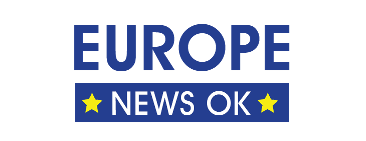
Europe’s future hinges on the creation of open digital ecosystems where principles of openness, choice, and collaboration flourish. As CEOs of two European companies, Lynx and Wire, we firmly believe in these principles as essential for nurturing innovation and enhancing European competitiveness.
Stan Larroque, CEO of Lynx, and Benjamin Schilz, CEO of Wire Group, share this vision.
Former Italian Prime Minister Enrico Letta’s recent report calls for bold changes to fortify the EU’s Single Market and spur innovation. The Antwerp Declaration, backed by over 1,000 organizations across various sectors of the European economy, underscores the significance of bolstering manufacturing in Europe—a pivotal aspect for our companies.
Encouraging open digital ecosystems can bolster new generations of European manufacturers and stimulate economic growth. Such ecosystems empower consumers to select their preferred devices and services, fostering greater innovation and competition.
Moreover, open digital ecosystems offer promising avenues for growth, providing fresh opportunities for startups, attracting investments, and driving economic expansion and job creation. They also ensure genuine digital sovereignty for both our political systems and customers, enabling informed choices regarding technology.
Defined by open standards, interoperability, and freedom of choice, these ecosystems cultivate a competitive market environment. While openness varies along a spectrum, leaning towards openness presents clear benefits. For Europe, without its own mega tech giants, embracing a more open stance offers superior opportunities for innovation and market dynamism.
Openness is particularly crucial in areas like artificial intelligence (AI). It fosters transparency, collaboration, and scrutiny, mitigating fears surrounding the technology and unlocking social and economic opportunities. Europe can leverage this to foster innovation in sectors like education, health, and transport.
As the Internet of Things (IoT) expands, the value of openness becomes increasingly apparent. Open standards facilitate seamless integration, enhancing both consumer experiences and innovation. By embracing open standards, manufacturers can collaborate effectively, creating interoperable products that elevate consumer choice and user experience in smart home ecosystems.
Interoperability benefits developers and consumers alike, enabling different technologies to work together seamlessly. Messaging services and the metaverse offer significant opportunities for collaboration and innovation within open ecosystems.
However, some companies employ strategies to lock in users, creating restrictive “walled gardens” that stifle competition. By advocating for open ecosystems, Europe can counteract these practices, positioning itself as a leader in AI, virtual worlds, and other emerging technologies. This approach fosters fair competition, innovation, and diversity in the tech landscape.
Security concerns are often raised regarding open digital ecosystems. Yet, open-source systems allow for broader scrutiny and faster vulnerability detection, enhancing security. Collaboration and transparency inherent in open-source systems can address security concerns effectively.
As the EU enters a new mandate, prioritizing the development of open digital ecosystems is crucial for driving competitiveness. Leveraging regulatory instruments like the Digital Markets Act and the Digital Services Act, the EU can foster a more open and competitive digital market. This drives our collaboration with other forward-thinking organizations in the Coalition for Open Digital Ecosystems (CODE).
Promoting competition, adopting flexible regulations, and empowering consumers can create a digital environment conducive to innovation and growth. We fervently believe that policymakers should focus on areas like consumer choice, open access, and emerging technologies to cultivate a competitive and innovative economic environment.
Supporting open digital ecosystems transcends technology; it’s about nurturing a vibrant digital economy that benefits businesses, consumers, and society. By emphasizing interoperability and empowering consumers, the EU can shape a digital future that promotes innovation, competition, and inclusivity.
It’s time for policymakers and industry leaders to act, ensuring that Europe remains at the forefront of digital innovation while balancing economic growth with sustainability. Open digital ecosystems provide the foundation for a thriving digital economy, fostering innovation, competition, and consumer choice.
CODE, a coalition comprising companies such as Flywallet, Google, Honor, Lynx, Meta, Motorola, Nothing, Opera, Qualcomm, and Wire, advocates for open digital ecosystems. Through collaboration with academics, consumer groups, policymakers, and startups, CODE aims to embed principles of openness—like consumer choice, access, and interoperability—into the digital landscape.
